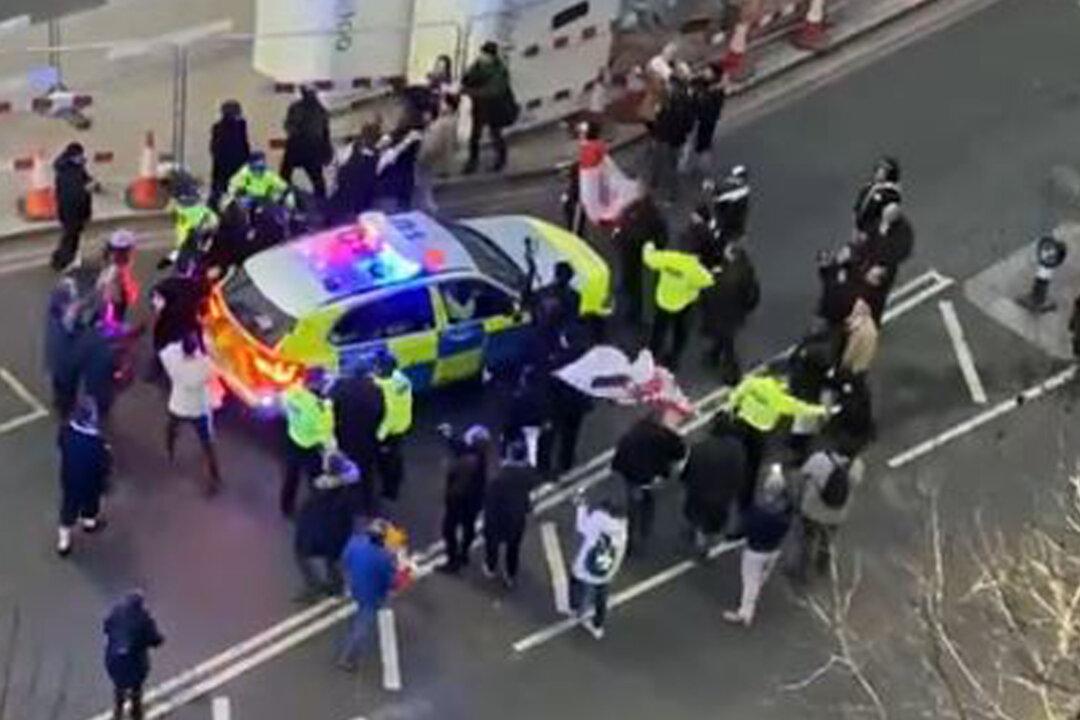Prime Minister Boris Johnson resisted calls for him to apologise for taking a swipe at Labour’s Sir Keir Starmer after the opposition leader was surrounded and followed by a group of protesters.
Police had to bundle Starmer into a car near Parliament on Monday evening after around one or two dozen protesters chased him, shadow foreign secretary David Lammy, and three other individuals, shouting at Starmer and making accusations seen by some as echoing Johnson’s comments.





